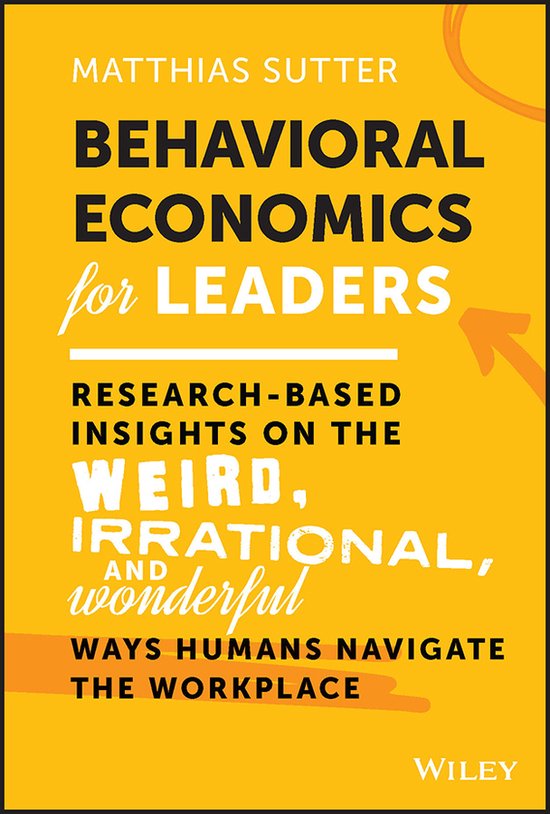Behavioral economics for dummies

Uiterlijk 4 december in huis
A guide to the study of how and why you really make financial decisions While classical economics is based on the notion that people act with rational self-interest, many key money decisions like splurging on an expensive watch can seem far from rational.
The guide to understanding why people really make economic and financial decisions
The field of behavioral economics sheds light on the many subtle and not-so-subtle factors that contribute to financial and purchasing choices. This friendly guide explores how socialand psychological factors, such as instinctual behavior patterns, social pressure, and mental framing, can dramatically affect our day-to-day decision making and financial choices. Based on psychology and sociology and rooted in real-world examples, Behavioral Economics For Dummies offers the sort of insights designed to help investors avoid impulsive mistakes, companies understand the mechanisms behind individual choices, and governments and nonprofits make public decisions.
Make realistic assumptions for economic analysis — investigate the assumptions conventional economics makes, and discover how behavioral economists introduce social, psychological, and cultural considerations
Explore the relationship between the brain and economics — understand how human behavior and surroundings affect economic phenomena
Examine the role of free choice in economic decision making — review the conditions that are necessary in order for people to make choices that reflect their true preferences, given the constraints they face
Get happy — recognize that factors other than wealth and money are critically important to a person's happiness, as defined by behavioral economics
Learn to:
Understand how social and psychological factors affect our economic and financial decisions
Grasp how governments and experts influence our choices
Avoid making impulsive and uninformed decisions
Appreciate why ethics are important to our choices
Open the book and find:
The many subtle factors that contribute to our financial and purchasing choices
Why people really make financial decisions
Real-world examples of how behavioral economics affects our lives
What social and psychological factors affect our decision making
How to use behavioral economics to be happier
Why government policies affect the economy
Helpful consumer tips
Go to Dummies.com for videos, step-by-step examples, how-to articles, or to shop!
A guide to the study of how and why you really make financial decisions
While classical economics is based on the notion that people act with rational self-interest, many key money decisions—like splurging on an expensive watch—can seem far from rational. The field of behavioral economics sheds light on the many subtle and not-so-subtle factors that contribute to our financial and purchasing choices. And in Behavioral Economics For Dummies, readers will learn how social and psychological factors, such as instinctual behavior patterns, social pressure, and mental framing, can dramatically affect our day-to-day decision-making and financial choices.
Based on psychology and rooted in real-world examples, Behavioral Economics For Dummies offers the sort of insights designed to help investors avoid impulsive mistakes, companies understand the mechanisms behind individual choices, and governments and nonprofits make public decisions.
A friendly introduction to the study of how and why people really make financial decisions The author is a professor of behavioral and institutional economics at Victoria UniversityAn essential component to improving your financial decision-making (and even to understanding current events), Behavioral Economics For Dummies is important for just about anyone who has a bank account and is interested in why—and when—they spend money.
- 1 Bekijk alle specificaties



Taal: en
Bindwijze: Paperback
Oorspronkelijke releasedatum: 27 maart 2012
Aantal pagina's: 360
Illustraties: Nee
Hoofdauteur: Morris Altman
Hoofduitgeverij: For Dummies
Extra groot lettertype: Nee
Product breedte: 191 mm
Product hoogte: 19 mm
Product lengte: 235 mm
Studieboek: Ja
Verpakking breedte: 187 mm
Verpakking hoogte: 24 mm
Verpakking lengte: 239 mm
Verpakkingsgewicht: 576 g
EAN: 9781118085035